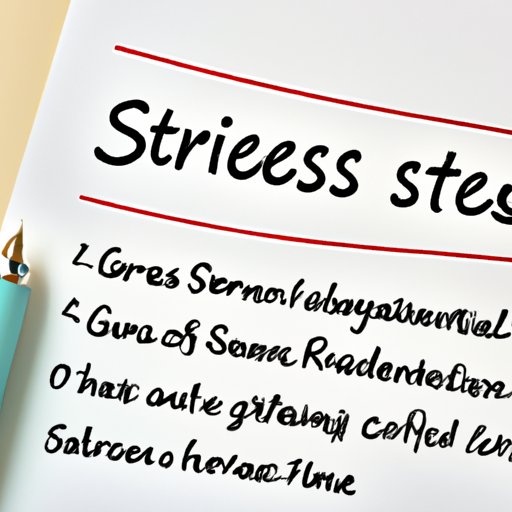
What is Good Stress and How it Can Benefit Us?
Stress is a natural psychological and physical response to changes in our environment, whether positive or negative. Stress can be categorized into two types: good stress or eustress and bad stress or distress. While bad stress can lead to burnout and exhaustion, good stress can be beneficial for our health, well-being, and productivity. In this article, we will explore what good stress is and highlight its positive impacts on our lives.
Identifying the Differences Between Good and Bad Stress
Good stress or eustress is a positive response to a stressor or challenge, which can help to motivate and energize us. For instance, getting ready for a job interview can be stressful, but it can be seen as a good stress situation because it encourages us to put our best foot forward. Bad stress or distress, on the other hand, is a negative response to a stressor or challenge, which can lead to anxiety, depression, and physical ailments. For instance, feeling overwhelmed and constantly thinking about work can lead to burnout and exhaustion.
Good stress motivates us to take action, improve our performance, and achieve our goals, while bad stress leads to exhaustion and burnout, impacting our physical and mental health negatively over time.
Highlighting the Benefits of Good Stress
Good stress can have positive impacts on our health, productivity, and well-being. When we experience good stress, our body releases hormones such as adrenaline and cortisol, which help to increase our energy levels and enhance our alertness and productivity. Good stress can also help to improve our immune system, sharpen our cognitive abilities and memory, and promote our emotional well-being.
Specific examples of how good stress can boost energy levels and enhance focus include taking on challenging tasks, learning new skills, or setting ambitious goals. These types of stressors push us outside of our comfort zone and motivate us to step up our game, leading to increased confidence and sense of accomplishment.
Discussing Strategies to Manage Good Stress
Although good stress can be beneficial, we need to manage it effectively to avoid burnout and exhaustion. Simple techniques such as meditation, exercise, or time management can help us handle good stress. However, it is crucial to find strategies that work for each individual and know your limits. For instance, regular exercise or a daily meditation or breathing break can help us manage good stress while also promoting overall well-being.
It is also important to create a healthy work-life balance and maintain a positive outlook by focusing on the positive outcomes of good stress. This way, we can cultivate resilience and develop our ability to handle stressful situations effectively.
Analyzing the Link Between Positive Mindset and Good Stress
Our mindset can greatly influence our ability to handle stress positively. People with a positive outlook tend to view stress as a challenge rather than a threat, which helps them to see good stress as an opportunity to grow and develop. A positive mindset also enables us to approach stress with an open mind and a willingness to learn, which helps us to find solutions and opportunities in challenging situations.
In order to cultivate a positive mindset, one can try practicing gratitude, visualizing positive outcomes, or engaging in activities that make them feel good such as spending time with loved ones or taking time for a hobby.

Highlighting Rules of Identifying when Good Stress gets out of Control
While good stress can be beneficial, it is important to be aware of the signs indicating when it has turned into bad stress. Some signs include increased levels of anxiety, feeling overwhelmed or burnt out, and experiencing physical symptoms such as headaches or fatigue. When this happens, it is crucial to re-evaluate our coping strategies and implement changes such as taking a break, seeking support, or practicing relaxation techniques.
Interviewing People Who Thrive on Good Stress
High-performing individuals who thrive on stress are a great source of inspiration and insight for those looking to improve their ability to handle good stress. These individuals often have a resilient mindset, understand their limits, and have found effective coping strategies that work for them. Hearing their stories can help us gain a better understanding of how to embrace good stress and use it to our advantage in our own lives.
Conclusion
Good stress or eustress can provide benefits such as increased energy levels, improved performance, and emotional well-being. By cultivating a positive outlook, identifying when good stress becomes bad stress, and implementing effective coping strategies, we can use good stress to our advantage and improve our overall quality of life.




